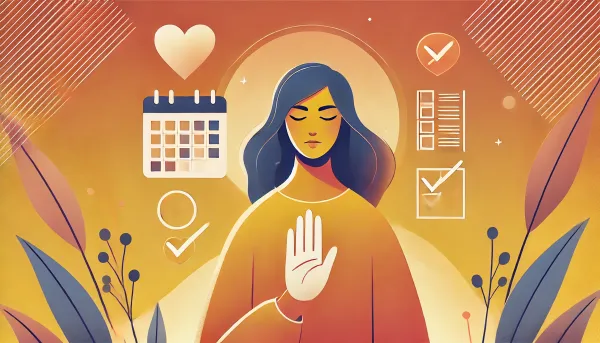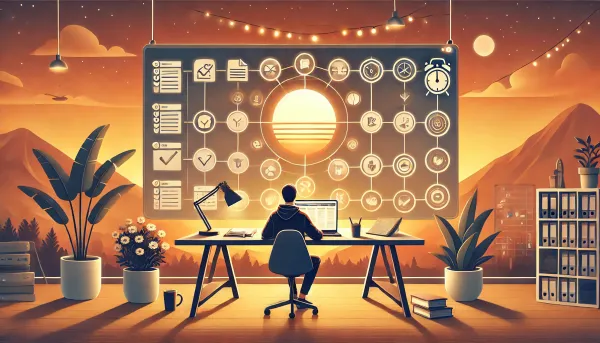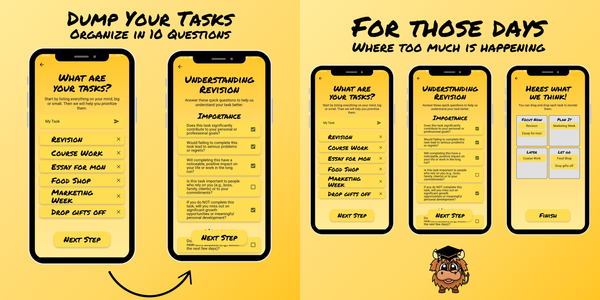Procrastination: Why We Do It and How to Stop for Good

Introduction
We’ve all experienced procrastination—putting off important tasks until the last minute, choosing distractions over responsibilities, and feeling guilty about it later. But why do we procrastinate, and how can we stop?
If you’ve ever found yourself wondering, “Why do I procrastinate so much?”, you’re not alone. Research shows that procrastination isn’t about laziness—it’s about emotional regulation and decision-making. In this article, we’ll explore the root causes of procrastination, its effects on daily life, and practical strategies to overcome it.
Plus, we’ll introduce Mairy’s Prioritisation Tool, designed to help you organize tasks and reduce procrastination using the Eisenhower Matrix.
What is Procrastination?
Procrastination is the act of delaying or avoiding tasks that need to be completed. It often involves choosing immediate pleasure or relief over long-term benefits, leading to stress and poor time management.
Common Types of Procrastination
- Passive Procrastination – Avoiding tasks due to fear, anxiety, or lack of motivation.
- Active Procrastination – Deliberately delaying tasks because you perform better under pressure.
- Decision Procrastination – Struggling to make choices due to perfectionism or fear of making mistakes.
Why Do We Procrastinate?
1. Present Bias & Instant Gratification
Our brains are wired to prioritize immediate rewards over future benefits. This is known as present bias, where tasks that offer long-term gains (like studying or exercising) feel less rewarding than immediate distractions (like social media or TV).
2. Fear of Failure & Perfectionism
Many people procrastinate because they fear failure or feel their work won’t be good enough. Perfectionism can cause paralysis—making it difficult to start a task because it seems impossible to complete perfectly.
3. Task Overwhelm & Lack of Structure
When a task feels too big or too complex, it’s easy to put it off. Without a clear plan, it can feel overwhelming to start, leading to avoidance.
4. Mental Health & Procrastination
Procrastination is often linked to mental health conditions like:
- Anxiety – Worrying about the outcome of a task can lead to avoidance.
- Depression – Low energy and motivation can make starting tasks difficult.
- ADHD – Difficulty with focus and impulse control can lead to chronic procrastination.
The Negative Effects of Procrastination
Procrastination can impact your health, career, and overall well-being.
1. Increased Stress & Anxiety
The longer you delay a task, the more stress and guilt build up, making the task seem even harder to start.
2. Poor Productivity & Missed Opportunities
- At work, procrastination can lead to missed deadlines and lower job performance.
- In school, it can result in lower grades and last-minute cramming.
3. Health Consequences
Procrastinators are more likely to skip medical checkups, avoid exercise, and develop sleep issues due to stress.
How to Stop Procrastinating: 7 Proven Strategies
1. Use the Eisenhower Matrix (Mairy’s Prioritisation Tool)
Mairy is a daily mood diary that helps you identify patterns in your habits and productivity. Our prioritisation tool uses the Eisenhower Matrix to sort tasks into four categories:
| Priority Type | Action | Example |
|---|---|---|
| Urgent & Important | Do immediately | Deadline-driven work, paying bills |
| Important but Not Urgent | Schedule | Exercise, career development |
| Urgent but Not Important | Delegate | Emails, minor requests |
| Neither Urgent nor Important | Eliminate | Social media scrolling, excessive TV |
This method helps you focus on high-priority tasks first, reducing stress and procrastination.
2. Break Tasks into Smaller Steps
Instead of thinking “I need to finish this big project,” try “I’ll spend 10 minutes on the introduction”. Small steps make tasks feel more manageable.
3. Set Deadlines & Time Blocks
Use the Pomodoro Technique—work for 25 minutes, then take a 5-minute break. This improves focus and productivity.
4. Reduce Distractions
- Turn off notifications on your phone.
- Use website blockers to limit social media.
- Create a dedicated workspace free of distractions.
5. Overcome Perfectionism
Done is better than perfect. Focus on progress, not perfection. Set realistic expectations for yourself.
6. Reward Yourself
After completing a task, reward yourself with something enjoyable, like a short break or a treat. This reinforces positive behavior.
7. Practice Self-Compassion
If you procrastinate, don’t beat yourself up. Studies show that self-forgiveness helps break the procrastination cycle.
FAQs About Procrastination
How does procrastination affect daily life?
Procrastination leads to stress, poor productivity, and missed deadlines, making everyday tasks more difficult.
Why do students procrastinate?
Students procrastinate due to academic pressure, lack of motivation, distractions, and fear of failure.
Is procrastination linked to mental health?
Yes, procrastination is often linked to anxiety, depression, and ADHD, making tasks harder to start.
FAQs About Mairy’s Prioritisation Tool
How does Mairy help with procrastination?
Mairy’s daily mood tracker helps you identify hidden patterns in your habits. Its prioritisation tool uses the Eisenhower Matrix to organize tasks effectively and reduce procrastination.
What makes Mairy different from other productivity apps?
Unlike traditional productivity tools, Mairy tailors task recommendations based on your mood and daily habits, helping you take actionable steps.
Can Mairy be used for both work and personal life?
Yes! Mairy is designed for students, professionals, and anyone looking to improve task management and mental well-being.
Conclusion
Procrastination isn’t just about poor time management—it’s about how we handle emotions, fear, and motivation. While it can have negative effects, strategies like the Eisenhower Matrix, breaking tasks into steps, and reducing distractions can help.
With Mairy’s Prioritisation Tool, you can organize tasks, track patterns in your productivity, and take control of your time.
📲 Download Mairy today and start overcoming procrastination!
~ The Mairy Team





